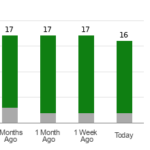
Clinton’s Concerns
Hillary Clinton, a prominent figure in U.S. politics, recently expressed apprehension over the potential threat posed by AI-generated disinformation to the upcoming 2024 presidential election. Joined by election officials, she raised concerns about the possibility of foreign entities, like Russian President Vladimir Putin’s regime, leveraging AI to interfere in both U.S. and global electoral processes.
Global Impact of AI
As countries around the world gear up for various elections this year, the discussion around the impact of AI on the integrity of democratic processes has gained significant traction. Clinton emphasized the urgent need for attention to this issue, warning that complacency could lead to dire consequences.
Historical Precedent
Reflecting on the events surrounding the 2016 election, Clinton highlighted how Putin’s attempts to sow discord included spreading false information through platforms like Meta Platforms, Inc., Twitter, and Snap Inc. She recounted the disinformation campaigns targeting her, indicating the insidious nature of such tactics.
The Evolution of Disinformation
Drawing a contrast between past and present disinformation strategies, Clinton noted the technological advancements that have amplified the reach and impact of misleading narratives. The utilization of sophisticated AI algorithms poses a new set of challenges for combating misinformation.
Preparing for 2024
In anticipation of the 2024 election, officials are bracing themselves for a surge in AI-generated disinformation campaigns. These campaigns may include false information on polling locations, voting procedures, and ballot submission processes, raising concerns about the potential erosion of trust in the electoral system.
Regulatory Responses
Recent regulatory actions, such as the prohibition of AI-generated voices in unsolicited robocalls by the Federal Communications Commission, signal a growing recognition of the need to curb the misuse of AI technologies for spreading disinformation. States like New Hampshire have also taken steps to address instances of AI-generated voter suppression tactics.





